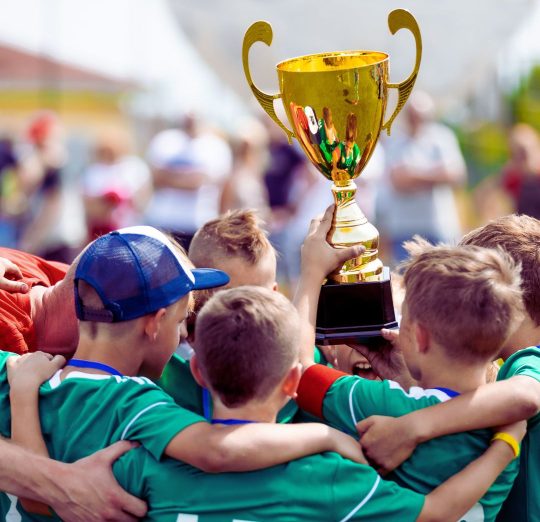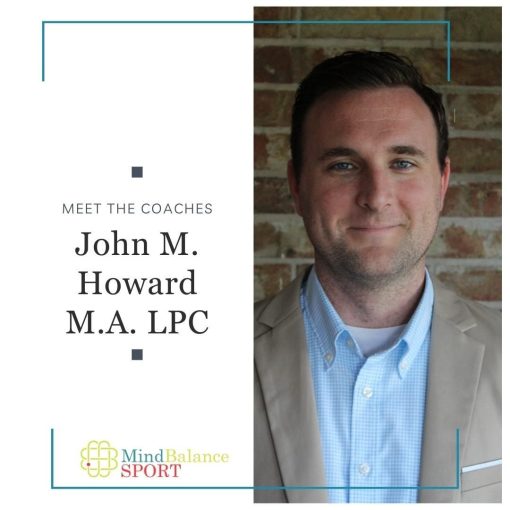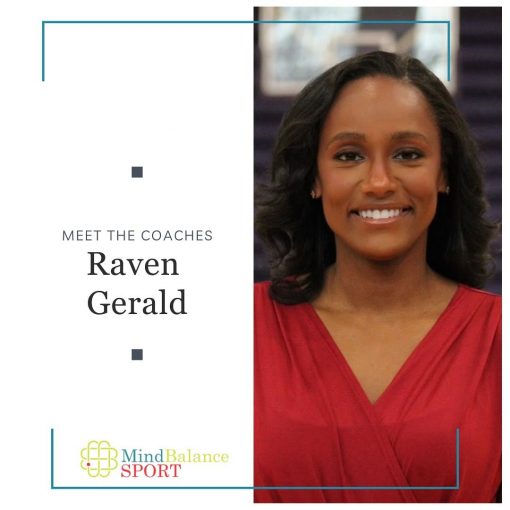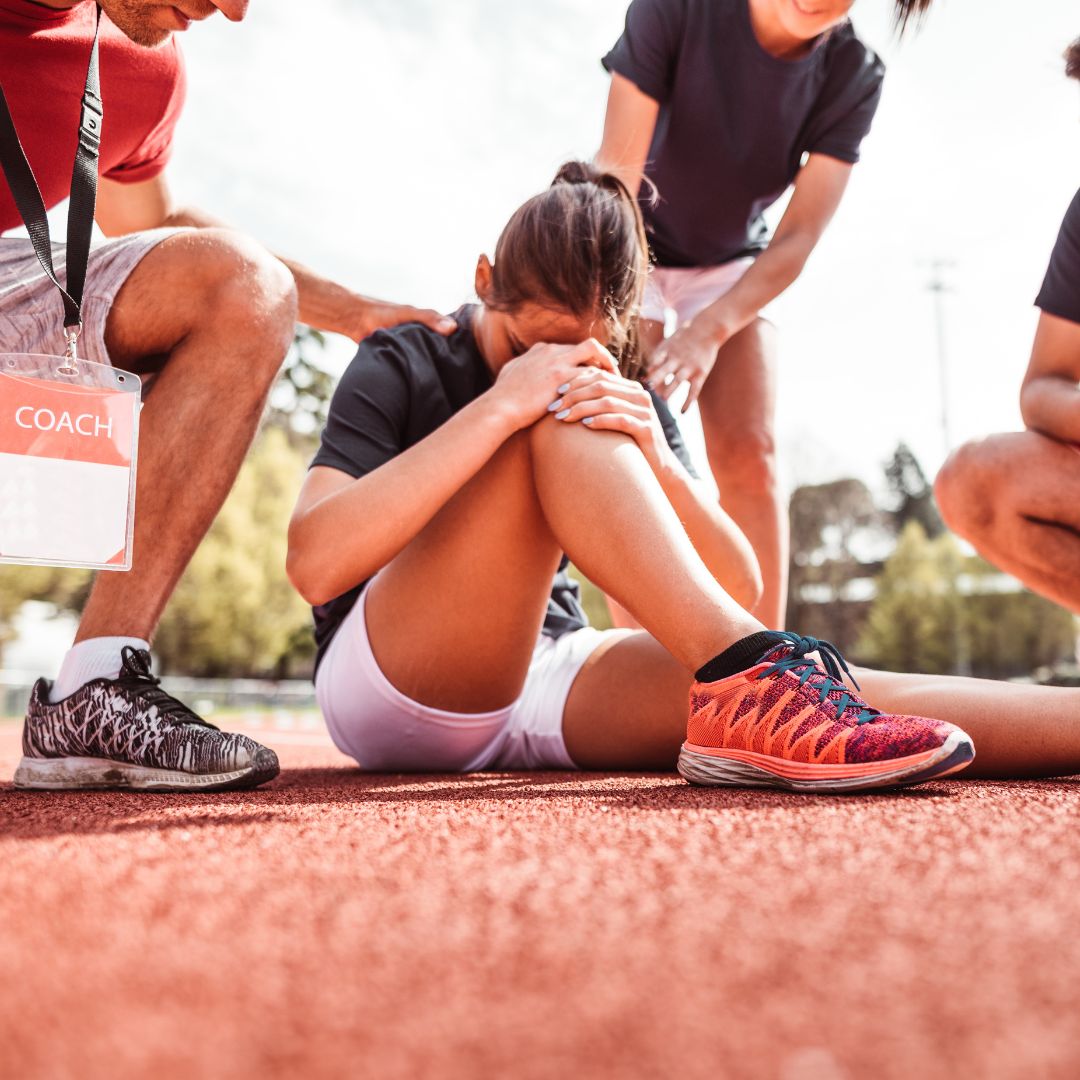Sports Psychologist in Frederick, MD
You want to work on your mental game, but how do you train your brain?
At MindBalanceSPORT, We Train The Other Half Of The Athlete.
You want to work on your mental game, but how do you train your brain?
Mental training does not get much media attention, but at MindBalanceSPORT we know it is a game changer. The mental skills you will learn at MindBalanceSPORT are generalizable in the classroom, in sport and in life!
We know that mental skills can be successfully taught, even at an early age.

Our Services
Meet the Team





testimonials
Athlete Stories: Real Comebacks, Real Results

Emma, a high school basketball player, tore her ACL in the middle of her junior season. After surgery, she struggled with self-doubt and fear every time she stepped back on the court. Through sport psychology training, she learned visualization techniques and confidence-building exercises that helped her regain trust in her knee. When she returned for her senior season, she didn’t just play—she led her team to the playoffs.

Carlos, a soccer player, suffered a stress fracture in his foot and had to miss half of his season. Sitting out was mentally tougher than the pain itself. We worked on mental engagement strategies to keep him sharp—studying game film, setting small rehab goals, and using mental imagery to stay ready. When he was finally cleared, his confidence never wavered.

Jordan, a track athlete, strained her hamstring before a major competition. She feared losing speed and falling behind competitors. Instead of focusing on what she couldn’t do, we redirected her energy toward mental preparation, using self-talk and goal setting to keep her confidence strong. When she returned, she set a new personal record.
EXCELLENTTrustindex verifies that the original source of the review is Google. It was a great help to my 14-year-old competitive volleyball player daughter. Raven was great to understand and connect with her from start to end. We will continue with our sessions as needed.Trustindex verifies that the original source of the review is Google. Great results! I’ve loved working with Paula. Our sessions have greatly improved both the physical and mental aspects of my tennis game. I’m playing better and having more fun! Highly recommend!Trustindex verifies that the original source of the review is Google. Our family had a wonderful experience with Paula Castro. We needed some additional confidence in a particular area/sport and Paula helped get us there. We know who to turn to if we need help again. She’s been a Blessing. Thank you, Paula!Trustindex verifies that the original source of the review is Google. I highly recommend MindBalanceSPORT. Our son works with John Howard. John is very caring, positive, and effective at working with teenagers. John is an adept listener and created an individualized plan tailored to our son’s personality. After just a few sessions with John, we noticed a significant improvement in our son’s motivation and mental approach to sports and life in general. Our son looks forward to meeting with John and tells us that he benefits immensely from their connection.Trustindex verifies that the original source of the review is Google. Paula Castro is an outstanding professional on the field. She has helped my daughter improve her confidence, preparation, and thanks to these session she feels more prepared and motivated. Paula takes the time also to share (what she can) and align with us as parents to be on the same page. Strongly recommended!Trustindex verifies that the original source of the review is Google. MineBalanceSPORT has quickly become the area's expert in sports psychology. Their reputation is well deserved given their incredibly thoughtful, scientifically based approaches to treating performance-related conditions, and I have only heard glowing, positive feedback from those who have engaged in their program. I will also add that Drs. Jones and Chirby presented to us (our group comprises of 15+ doctors and masters level clinicans) about their program and impressed us all with their level of expertise and passion for this field. I give them my highest recommendation.Trustindex verifies that the original source of the review is Google. Dr. Jones was beyond helpful to me throughout our time together. If you are an athlete and you need advice or assistance this is the place to come to. She completely changed my outlook and mindset in a time when I needed her most. I look forward to staying in touch with her and am forever thankful for her expertise.Trustindex verifies that the original source of the review is Google. Paula has been a huge help with my daughter Morgan coming off her injury. It’s been 18 months since she’s played basketball and she’s thriving because I know Paula is guiding her the right direction. As a mother, I’m extremely gratefulTrustindex verifies that the original source of the review is Google. If you are looking for Amazing Psychologists who can help support you in your sports performance, you need to call MindBalanceSPORT! Dr. Chirby and her colleagues are a wealth of knowledge, they have so many helpful techniques for mind balance, and they have so much compassion for the communities that they serve! Highly recommend!!!
Recovery
While Everyone Has A Physical Ceiling, There Is No Mental Ceiling.
Optimizing Athletic Performance with Sports Counselling in Frederick, MD
Optimizing Athletic Performance with Sports Counselling in Frederick, MD
The collegiate athletic experience is often intense, demanding, and deeply rewarding. However, the pressures faced by student-athletes—balancing academics, high-performance sports, and personal life—can take a significant toll on their mental health and overall well-being. Sports psychology and coaching play a pivotal role in not only enhancing performance but also fostering a healthier and more resilient mindset among collegiate athletes.
Key Areas Where Sports Psychology Enhances Well-Being
- Managing Stress and Anxiety
Student-athletes often face immense pressure from competition, academic deadlines, social expectations, and personal challenges. Sports psychologists teach strategies such as mindfulness, breathing exercises, or visualization techniques to help reduce stress levels. - Building Mental Toughness
Through mental skills training (e.g., goal setting, focus enhancement), sports psychologists help athletes develop resilience so they can effectively handle setbacks like injuries or poor performance. - Enhancing Motivation
Staying motivated during long seasons or after multiple losses can be challenging. By helping athletes identify intrinsic motivators—such as personal growth or team camaraderie—they maintain focus on achieving long-term goals. - Improving Team Dynamics
Effective communication between teammates fosters trust and minimizes conflicts. Sports psychology interventions often include group workshops that improve social cohesion within teams.
Techniques Used by Sports Psychologists
| Technique | Description |
| Cognitive Behavioral Therapy (CBT) | Helps reframe negative thought patterns into constructive self-talk for improved focus |
| Imagery/Visualization | Encourages athletes to mentally rehearse scenarios for better preparation |
| Biofeedback Training | Teaches how to regulate physiological responses such as heart rate control |
| Mindfulness-Based Strategies | Promotes present-moment awareness to reduce overthinking |
Role of Coaches in Integrating Mental Health Practices
- Setting realistic expectations to reduce performance pressure.
- Encouraging open dialogue about mental health challenges without stigma.
- Collaborating with sports psychologists for personalized athlete support programs.
- Reinforcing strategies learned in individual or group sessions with sports psychologists.
Benefits of Prioritizing Well-Being
- Reduced burnout rates among athletes.
- Enhanced academic achievement due to improved focus.
- Better team morale resulting from emotionally healthy players.
- Increased longevity in athletic careers due to balanced self-care practices.
The integration of sports psychology into collegiate athletics offers powerful tools that promote not only peak performance but also long-term emotional balance—a crucial determinant in achieving sustainable success on and off the field.
The Vital Importance of Sports Psychologists in Frederick, MD for Enhancing Student-Athletes’ Mental Health
Exploring Performance Psychology in Frederick, MD: Mental Health Challenges of Student-Athletes
- Balancing Academic and Athletic Demands: Managing coursework alongside rigorous training and competitions can lead to stress, burnout, and sleep deprivation.
- Performance Anxiety: Fear of failure or underperformance during matches or events can lead to overwhelming anxiety that impacts both confidence and results.
- Injury Recovery: Physical injuries can lead to feelings of isolation, frustration, or even depression when athletes are sidelined from competition.
- Identity Issues: Many student-athletes tie their identity heavily to their sport. Transitioning out of athletics or facing setbacks may compromise self-esteem.
Sport Performance Training in Frederick, MD: How Sports Psychologists Provide Support
- Teaching relaxation methods such as deep breathing exercises or progressive muscle relaxation.
- Introducing mindfulness practices like meditation or grounding techniques for staying focused in high-pressure situations.
- Assisting athletes in recognizing negative thought patterns that contribute to anxiety or self-doubt.
- Guiding them toward reframing these thoughts with constructive and positive alternatives.
- Helping set realistic short-term and long-term goals tailored to an athlete’s personal strengths and circumstances.
- Fostering intrinsic motivation by aligning goals with personal values rather than external pressures.
- Providing guidance during major transitions like moving from high school sports into college athletics or stepping away from competitive sports entirely.
- Equipping athletes with coping mechanisms for life beyond collegiate participation.
How a Sports Mental Coach in Frederick, MD Can Benefit Collegiate Athletes
| Benefit | Description |
| Improved Focus | Enhanced concentration during games or practice sessions through mental conditioning techniques |
| Better Stress Management | Effective handling of anxiety-inducing situations both academically and athletically |
| Reduced Risk of Burnout | Learning how to manage workloads prevents exhaustion on physical and emotional levels |
| Emotional Resilience | Developing coping skills improves handling setbacks such as losses or injuries |
Collaboration With Coaches & Athletic Departments
- Conducting workshops on team-building activities.
- Advising coaching staff on how to detect early signs of mental distress among players.
- Assisting athletic departments in creating safe spaces where concerns about mental health can be openly discussed without stigma.
By addressing these areas comprehensively, sports psychologists serve as indispensable partners in promoting not only performance but also long-term emotional well-being among collegiate athletes.
Finding a Sports Psychologist Near Me to Overcome Challenges Like Canceled Seasons
Canceled sports seasons can be devastating for athletes, especially those who dedicate countless hours to training and preparing for competition. These events can have profound physical, emotional, and psychological impacts. Sports psychologists play a pivotal role in helping athletes navigate these challenges by offering strategies to maintain mental health, build resilience, and stay focused on long-term goals. Below is an exploration of how they assist athletes in coping with such uncertainties.
Emotional Management Strategies
- Mindfulness Techniques: Teaching athletes how to stay present and focused instead of dwelling on the uncertainty of future events.
- Cognitive Behavioral Therapy (CBT): Identifying negative thought patterns about canceled opportunities and reframing them positively.
- Journaling: Encouraging reflection on emotions and personal growth during the downtime.
These methods promote emotional stability and teach athletes to manage their responses constructively.
Maintaining Motivation Through Goal Setting
- Set short-term flexible goals, such as improving specific skills or fitness levels.
- Focus on process-oriented goals, emphasizing progress rather than outcomes.
- Reframe perspectives by fostering an attitude of adaptability and perseverance.
By maintaining a purposeful routine, athletes avoid stagnation and continue working toward personal development.
Building Resilience During Uncertainty
- Encouragement of Growth Mindset: Helping athletes view challenges as opportunities for improvement rather than insurmountable obstacles.
- Stress Management Training: Equipping individuals with techniques like deep breathing or progressive muscle relaxation to manage anxiety.
- Social Support Utilization: Strengthening connections with teammates, family members, or support networks as sources of encouragement.
These measures help athletes bounce back stronger from adversity while cultivating mental toughness for future challenges.
Supporting Team Dynamics
- Facilitate virtual team meetings or group counseling sessions to maintain camaraderie.
- Encourage peer-to-peer support among teammates during periods of isolation.
- Develop strategies for keeping team morale high despite the lack of competition.
Such efforts preserve team cohesion while ensuring every player feels supported both mentally and emotionally.
| Common Challenges Faced | Psychological Strategies Employed |
| Loss of structure | Goal-setting techniques |
| Disappointment/grief | Emotional regulation exercises |
| Lack of motivation | Reframing perspectives |
| Anxiety about the future | Stress management strategies |
Long-Term Perspective Development
Finally, sports psychologists guide student-athletes in taking a long-term perspective. They emphasize transferable life skills gained from sports—discipline, leadership, teamwork—and redirect focus toward academic aspirations or other interests during canceled seasons. This approach fosters not only resilience but also a broader sense of identity beyond athletics.
By addressing both immediate concerns and overarching personal development needs, sports psychologists provide invaluable support tailored to each athlete’s unique circumstances during times of uncertainty like season cancellations.
Improving Student-Athlete Resilience and Performance with Professional Sports Psychology
The life of a student-athlete is a delicate balance of academics, athletic performance, and personal development. Sports psychologists play a pivotal role in equipping these athletes with the tools to manage stress, enhance resilience, and optimize performance. By focusing on mental fortitude and coping strategies, professional sports psychology contributes significantly to the growth of student-athletes.
Key Areas Where Sports Psychology Enhances Resilience and Performance
- Techniques such as visualization, self-talk, and goal-setting help athletes build confidence.
- Training the mind to stay focused during high-pressure situations ensures consistent performance.
- Developing a growth mindset encourages athletes to view challenges as opportunities for improvement.
- Breathing exercises and mindfulness practices assist in regulating anxiety before competitions.
- Time management strategies allow student-athletes to balance academic responsibilities with athletic commitments.
- Learning to reframe setbacks positively helps maintain motivation after losses or injuries.
- Attention control training reduces distractions during practice or competition.
- Pre-performance routines establish consistency in preparation.
- Techniques like imagery (mental rehearsal) prepare athletes for various scenarios they may encounter.
Tools Used by Sports Psychologists
| Tool | Purpose | Example Practices |
| Visualization | Mentally rehearsing success | Imagining scoring points or executing plays effectively |
| Positive Self-Talk | Replacing negative thoughts with positive affirmations | Repeating “I am prepared” or “I can handle this” before events |
| Biofeedback Training | Monitoring physiological responses | Using heart rate monitors to recognize stress triggers |
| Relaxation Techniques | Reducing physical tension | Progressive muscle relaxation or deep breathing exercises |
Practical Applications for Student-Athletes
- Pre-Game Routines: Establishing rituals that mentally prepare athletes before games, such as listening to calming music or reviewing goals.
- Post-Game Reflection: Encouraging journaling or team discussions to process wins, losses, and areas for improvement.
- Resilience Workshops: Conducting group sessions on bouncing back from adversity using case studies or simulated challenges.
Long-Term Benefits of Professional Guidance
By integrating sports psychology into their routines, student-athletes not only perform better but also foster lifelong skills such as emotional regulation, adaptability, and problem-solving. These benefits extend beyond athletics into academic pursuits and personal relationships.
Professional sports psychology ensures that resilience-building is not limited to addressing athletic struggles but aligns with broader well-being initiatives aimed at empowering student-athletes in all aspects of their lives.
The Role of Coaches and Sports Psychologists in Shaping Athletic Success and Well-Being
Coaches and sports psychologists play a pivotal role in molding the success and overall well-being of athletes. Their combined efforts create an environment where both physical performance and mental health are prioritized, leading to sustainable achievements on and off the field. Here, we explore how these two roles complement each other to foster growth, resilience, and performance among athletes.
Collaborative Efforts Between Coaches and Sports Psychologists
When coaches and sports psychologists work synergistically, they address the full spectrum of an athlete’s development — from technical skills to psychological readiness. While coaches focus on strategy, technique, and physical conditioning, sports psychologists specialize in mental preparation, emotional regulation, and goal-setting.
- Coaches set challenging goals for performance improvement.
- Sports psychologists teach mental techniques like visualization or self-talk to help athletes stay focused under pressure.
- Coaches design training regimens that push limits but avoid burnout.
- Sports psychologists provide stress-management tools such as mindfulness exercises or time management strategies.
- Coaches manage group cohesion on a tactical level.
- Sports psychologists assist in conflict resolution, communication improvement, or leadership training within the team setting.
How Coaches Influence Athletic Well-Being
The role of a coach goes beyond teaching technical skills. They often act as mentors who influence an athlete’s confidence levels, motivation, and overall mental welfare.
- Positive Reinforcement: Highlighting successes builds self-esteem while fostering intrinsic motivation.
- Establishing Trust: Transparent communication ensures athletes feel supported during setbacks or injuries.
- Promoting Healthy Habits: Encouraging recovery routines (nutrition or sleep) contributes to physical stamina as well as emotional balance.
However, coaches alone cannot address all aspects of psychological needs — making the input of sports psychologists essential for comprehensive support.
How Sports Psychologists Shape Athletic Success
Sports psychologists provide tailored strategies aimed at harnessing an athlete’s potential both during competition and throughout their career trajectory. Their expertise empowers athletes to navigate challenges more effectively by enhancing focus, resilience, and emotional regulation.
| Intervention Type | Benefits |
| Performance Visualization | Builds confidence by mentally rehearsing successful outcomes |
| Anxiety Reduction Techniques | Reduces pre-game jitters through breathing exercises |
| Goal-Setting Frameworks | Aligns short-term objectives with overarching aspirations |
| Coping Mechanisms | Strengthens response to adversity like losses or injuries |
Combining these approaches allows for improved consistency in athletic performance while simultaneously addressing individual well-being concerns.
The Intersection of Physical Achievement and Mental Health
- Athletes maintain a healthy relationship with competition.
- Psychological risks like anxiety or burnout are mitigated early.
- Personal growth is supported alongside professional achievement.
This partnership ultimately promotes well-rounded development that benefits not just the athlete but also their team culture over time — creating a balance between competitive goals and long-term wellness priorities.
Addressing the Unique Mental Health Needs of Collegiate Athletes Across All Levels
Collegiate athletes face a distinct set of mental health challenges. The pressures of balancing academics, athletic performance, and personal life can lead to stress, anxiety, and burnout. Sports psychologists play a pivotal role in recognizing and addressing these unique needs, ensuring athletes thrive both on and off the field.
Common Mental Health Challenges for Collegiate Athletes
- High expectations from coaches, teammates, and fans can lead to immense stress.
- Fear of failure or underperformance may manifest as anxiety or self-doubt.
- Managing intensive training schedules alongside academic demands often leaves little time for self-care.
- Fatigue and overcommitment may contribute to feelings of overwhelm.
- Injuries disrupt physical progress but also affect mental well-being, leading to frustration or depression.
- Fears about recovery timelines or returning to play at previous levels can exacerbate anxiety.
- For many collegiate athletes, graduation means leaving competitive sports behind, which is often accompanied by identity struggles and uncertainty about the future.
- Navigating team dynamics while cultivating friendships outside the athletic community can be daunting.
- Isolation or feelings of being misunderstood by non-athletes may arise.
How Sports Psychologists Support Collegiate Athletes
- Individualized Counseling Sessions: Personalized support aids athletes in managing stressors such as performance pressure or academic workload.
- Goal Setting and Visualization Techniques: These methods help build confidence while promoting focus during training or competition.
- Mindfulness & Relaxation Practices: Techniques such as meditation or controlled breathing assist athletes in maintaining composure under pressure.
- Support During Injury Recovery: Helping athletes reframe setbacks positively fosters resilience during rehabilitation periods.
- Post-Career Transition Assistance: Preparing students mentally for life after sports helps ease identity shifts when leaving collegiate athletics.
- Crisis Intervention Support: Addressing acute challenges like homesickness, depression, or eating disorders ensures timely interventions are provided when most needed.
Key Areas Where Needs May Differ Across Levels
| Competitive Level | Characteristics & Mental Health Needs | Support Strategies |
| Intramural Athletes | Focused more on enjoyment than competition; occasional performance worries | Foster team-building activities; promote balance |
| Division III (D3) Collegiate Athletes | Minimal scholarships; juggling multiple priorities outside sports | Help develop time-management skills |
| Division I (D1) Collegiate Athletes | High stakes with scholarships; intense competition; media scrutiny | Emphasize mental resilience techniques |
Collaborative Efforts Between Teams and Psychologists
- Athletic trainers provide insights into physical demands contributing to psychological strain.
- Coaches create a culture that prioritizes athlete well-being over just winning outcomes.
- University counseling centers work alongside sports psychologists to expand access to resources for student-athlete populations.
By fostering holistic care models that integrate the efforts of these contributors, institutions ensure their athletes are supported at every stage—both emotionally and athletically—during their collegiate journey.








